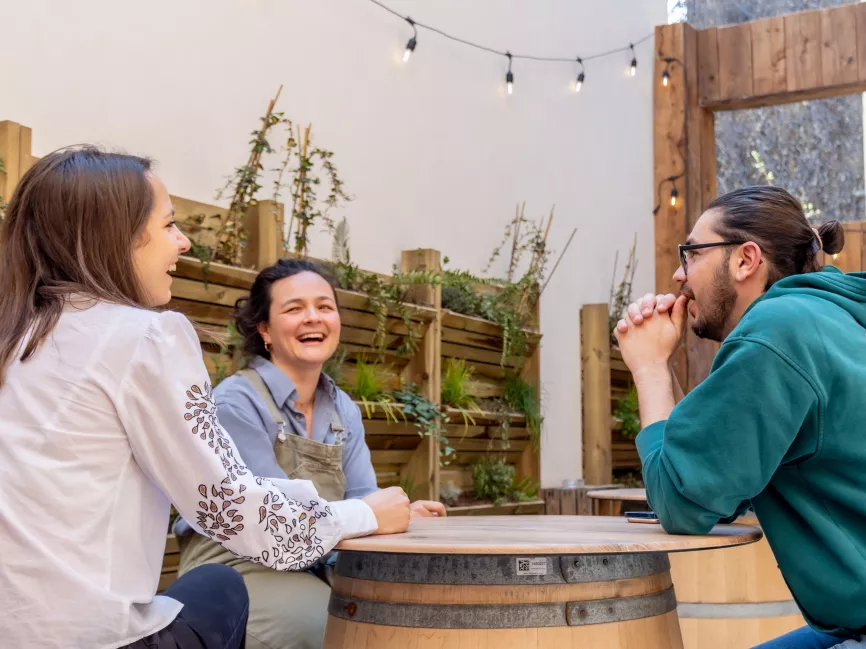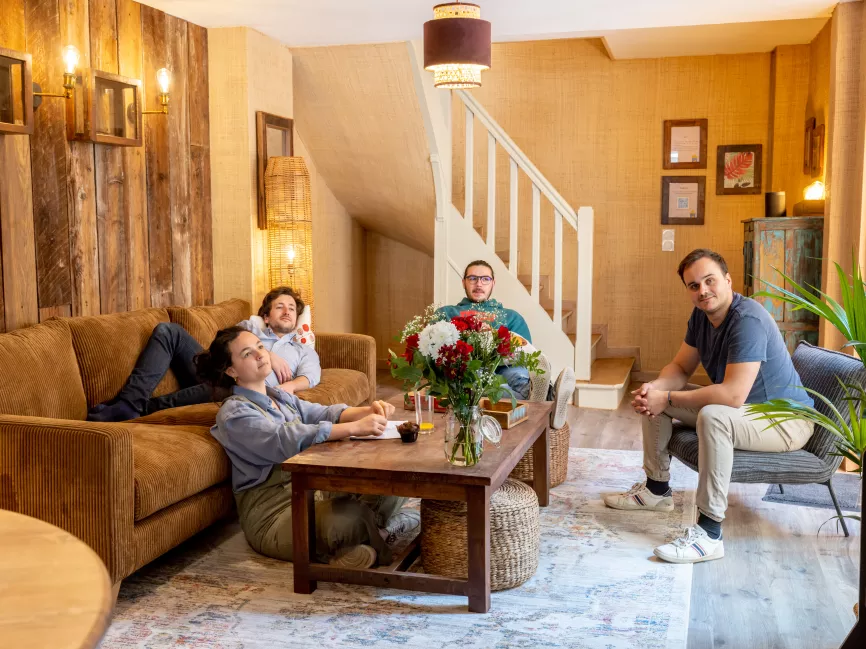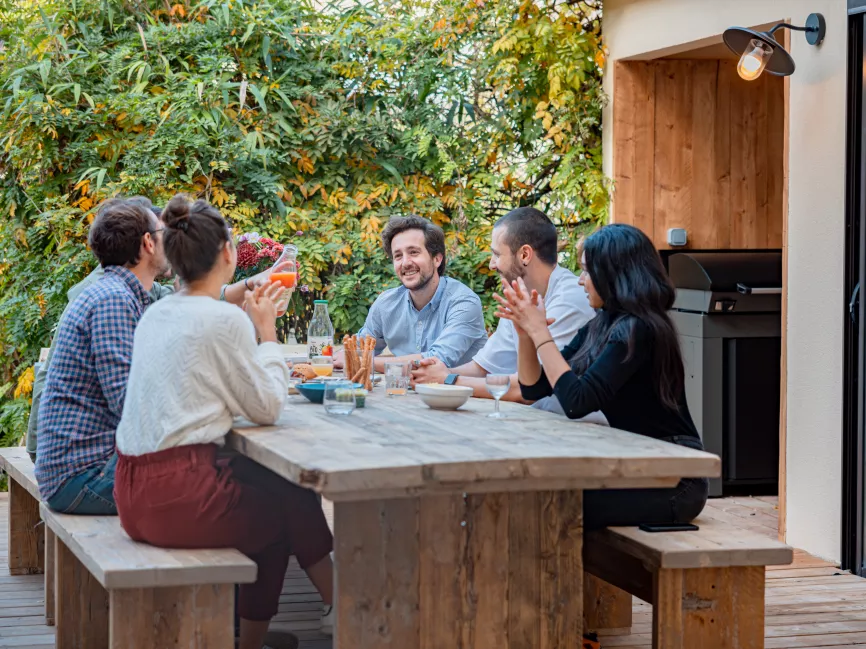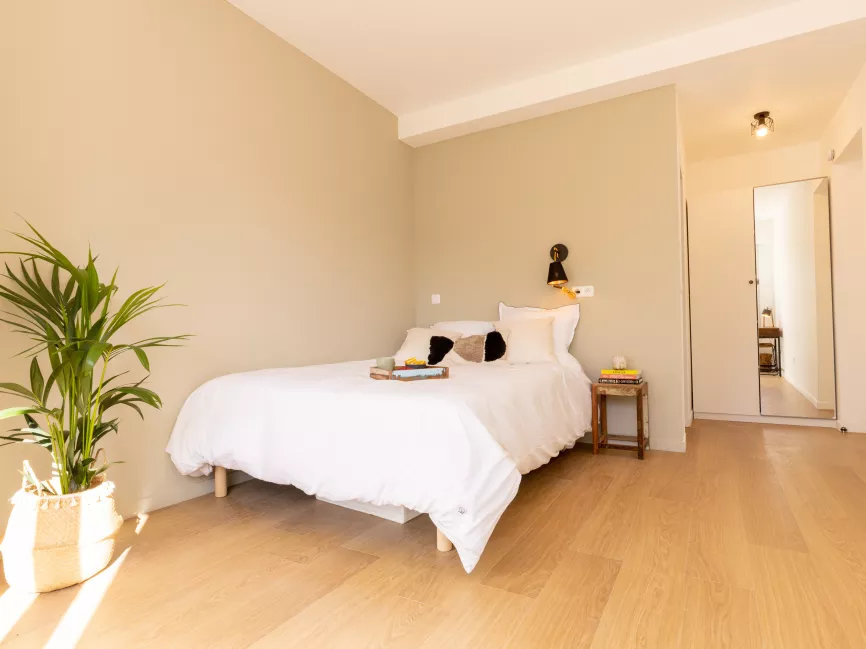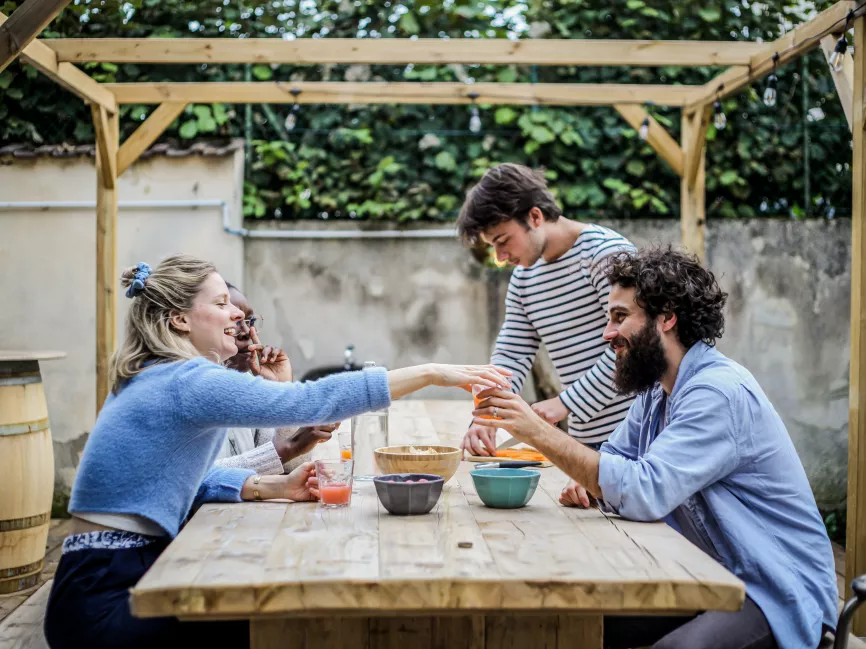What is coliving?
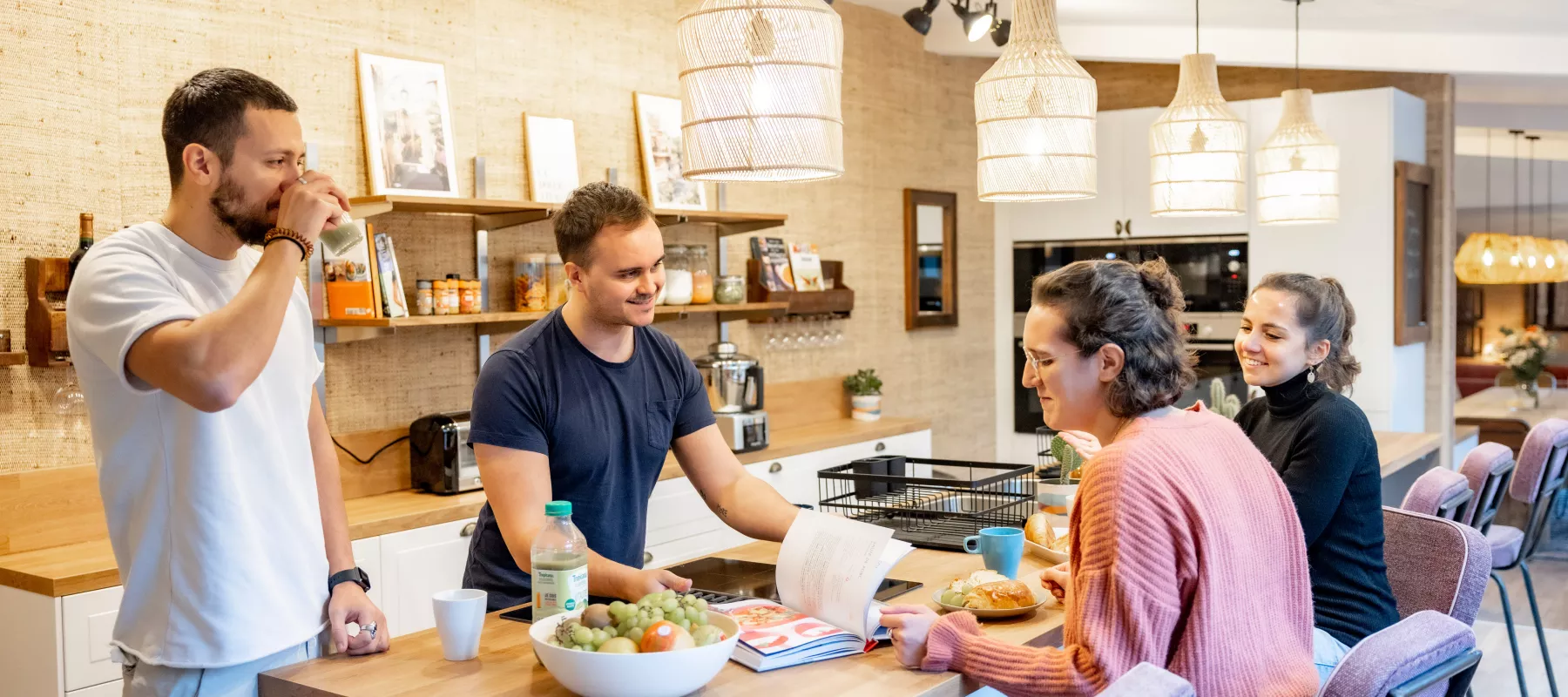
Since the 2000s, an innovative concept called coliving has emerged on the West Coast of the United States, revolutionizing the way we live in community. This new urban trend is rapidly expanding in cities such as New York, Berlin, Tokyo, and even in France since 2017. Coliving, halfway between hotel accommodation and traditional shared housing, promises a completely unique living experience.
What exactly is coliving?
The term itself is a hybrid of the English words "co" (together) and "living."
This concept goes beyond simply sharing facilities; it creates a real community where residents share much more than spaces. They share life moments, experiences, and services.
They enjoy both private (rooms ranging from 10 to 30 sqm, private bathrooms) and shared living spaces (lounges, gyms, libraries, cinemas, coworking spaces, terraces, etc.).
A multitude of services are centralized and shared, from Wi-Fi connectivity and housekeeping to home insurance, Netflix subscriptions, fitness classes, a sauna, and sometimes even a concierge service to manage deliveries or dry cleaning services. The aesthetics and service are heavily inspired by the standards of the hotel industry.
Coliving is a lifestyle that particularly appeals to the Millennial generation.
Already familiar with sharing in all its forms, whether it's flatsharing, coworking, or carpooling, this way of life isn't exclusive to this age group. Coliving can also appeal to anyone in a transitional phase of their life, whether they're recently divorced individuals, professionals on temporary assignments, or even young retirees. It offers a unique opportunity to enjoy turnkey housing while fostering social interactions.

The benefits of coliving are numerous.
Rental contracts are flexible, with stays ranging from one month to five years. The rent encompasses not just the housing, but also home insurance and a wide array of services related to community living. Unlike traditional flatsharing, a private coliving actor simplifies life in shared living by offering meticulously arranged spaces, convenient shared services, and by fostering connections within the community, thus making shared living more enjoyable and harmonious for its residents.
Inhabitants don't have to worry about cleaning common areas (depending on the coliving actor). Everyone has their own private space, ensuring a sense of comfort and freedom. Social relations are simplified, encouraging meetings and exchanges.
Coliving can also be a more economical option.
Occupying a private space while having access to shared spaces and services costs about 950 euros per month, compared to the 1200 euros per month for a small furnished apartment in Paris. In addition to promoting sociability, this form of living aims to address the growing problem of isolation in big cities, while making access to housing smoother.

Coliving at La Casa
At La Casa, we have decided to put the community at the heart of all our projects. Today, La Casa consists of 33 houses in the Ile-de-France region, distributed all around Paris. Each Casa has its theme and houses between 8 and 18 housemates. Each housemate has their private room and enjoys a pleasant shared space for successful co-living.
